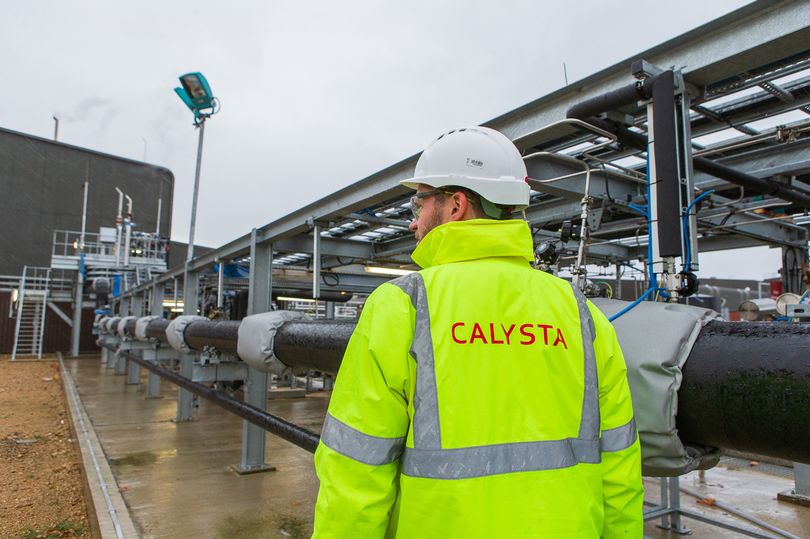
Calysta announces $39 Million investment to fund global expansion plans

Calysta, Inc. Leading alternative protein producer Calysta has completed a $39 million financing round, led by bp ventures, to support global scale-up of production of Calysta’s FeedKind® protein.
FeedKind is a family of natural, sustainable, and traceable feed ingredients for fish, livestock and pets. It is produced using no arable land or water and improves global protein security, one of the greatest challenges facing the world today.
The expansion of the Series D-1 funding round will support scoping and pre development of the company’s next manufacturing site, outside Asia. Calysta is currently working towards completion of the world’s first commercial FeedKind production facility in China via Calysseo, Calysta’s 50/50 JV with Adisseo. It is set to come online late 2022. It also operates an R&D facility in the UK.
Joining bp ventures in the round were Adisseo, AquaSpark and WTI, as well as Calysta’s other existing investors.
“In expanding FeedKind production beyond the current growth strategy in Asia, we are aiming to continue to convert low cost natural gas resources into high-value, environmentally-friendly protein alternatives,” said Thomas Huot, Ph.D., Calysta’s COO.
“Global food and protein supply chains have never been more challenged, thanks to increasing land and water scarcity coupled with an ever-growing global population.
“FeedKind makes more from less by utilizing the abundant natural gas resources to produce feed for fish, livestock and pets, reducing the pressure on our oceans and arable land for non-animal feed production.”
Calysta’s technology produces sustainable single-cell protein, which is produced through a proprietary, commercially validated gas fermentation process using naturally occurring, non-GM microbes that use methane as their energy source.
Thomas Huot continued:
“We look forward to working closely with our strategic partners at bp and Adisseo as we expand our FeedKind production to the world. Calysta will benefit from bp’s operational excellence and focus on delivering sustainable energy. Meanwhile Adisseo is accelerating commercialization of the product and supporting sales and marketing efforts in Asia.”
Meghan Sharp, head of bp ventures, said:
“We believe Calysta’s innovation offers an opportunity to deliver sustainable protein for the planet and supports bp’s strategy of creating new markets in which gas can play a material role in delivering a more sustainable future. That’s why in 2019 bp ventures invested in Calysta and its FeedKind technology, and today we are excited to build on that investment with an additional $10 million commitment.”
Calysta’s patented, state-of-the-art fermentation process uses no arable land and very little water. It does not compete with the human food chain, meaning more food can be produced with less resources.
In aquaculture, Calysta’s initial market opportunity, FeedKind is seen as a key enabler for growth by reducing reliance on conventional sources of protein.
Currently, the aquaculture market relies on fishmeal – which is made from small, wild-caught fish – or soy protein to produce feed for its stock. FeedKind has been proven to be a safe and effective alternative for these proteins – allowing for the expansion of aquaculture without needing to catch more fish from the ocean or use more wild spaces to grow crops.
The global population has grown from 7billion in 2010 to 7.9 billion today. It is expected to reach nearly 10billion by 2050. With incomes growing across the developing world, the Food and Agriculture Division of the United Nations predicts that world meat production will double by 2050.
FeedKind protein can help achieve a sustainable food future by meeting the growing demands for protein while avoiding deforestation and allowing the restoration of abandoned and unproductive land.
Calysseo, Calysta’s 50/50 JV with Adisseo, will bring 20,000 tonnes of production capacity online in 2022, with 60,000 tonnes to follow shortly thereafter. There is already significant customer demand for this protein in China.
Additional product manufactured outside Asia will support sustainable growth of the aquaculture sector in key markets by delivering nutritious feed that does not compete with the human food chain.
By Calysta (UK)
437 Views
Recent Posts
- BECBC appoints a new Chair and directors to drive growth and innovation
- Compressed Air – Be Prepared for Any Contingency
- Innovative Multi-Point Earthing System from StuvEx & Thorne & Derrick
- Navigating IR35 compliance in your business
- Our Emissions Program has evolved digitally
Back to News >



